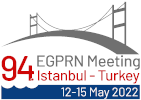Promoting health critical thinking by and for students: utopia or reality? The example of the Critical Thinking Days in Nice
Gabriel Perraud, Robin Jouan, Stéphane Munck, Adriaan Barbaroux
Keywords: pedagogy; education; medicine; problem-based learning; pharmaceutical industry
Background:
Contact with health industry representatives from the initial training stage influences future prescribers on the type and quantity of
molecules they will prescribe. Numerous initiatives have offered training in critical appraisal of pharmaceutical promotion. However, most medical
students considered that they were not sufficiently trained on this subject and wanted more teaching on this subject.
Research questions:
Thus, a group of students has started to organise peer training for critical thinking in health: the "Journées de l’esprit critique niçois".
Method:
This paper describes the first two courses, which took place at the Faculty of medicine in Nice. The first day consisted of four workshops. They dealt with: health communication, analysing scientific articles, the relationship between health care providers and industry, and debating the pharmaceutical sales visits in clinical settings. The second day consisted of three workshops followed by a screening of the movie "La Fille de Brest". The workshops dealt with: social psychology in health, presentation of information, the Mediator case. The workshops were animated using innovative pedagogical techniques.
Results:
The participants had a variety of backgrounds. Participation rates for the evaluations of the two days were 66.5% and 46%. The average rating given to the workshops was 8.15/10. Participants expressed appreciation for the teaching methods used.
Conclusions:
Training and awareness of pharmaceutical promotion of students by their peers was not only feasible but highly valued by medical students. However, we lack feedback on the impact of these courses in their clinical practice. The "Journées de l’esprit critique niçois" was the first student initiative to train and raise awareness of critical thinking and pharmaceutical promotion techniques in this format. In a context of tensions between the student needs for independence training and universities struggling to meet their social responsibility, peer training of students is an efficient response to an ethical and societal issue.
Points for discussion:

